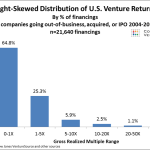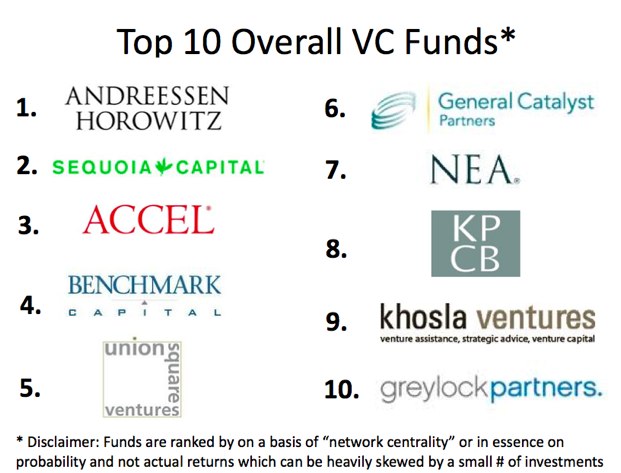What is the Absolute Best Book on Venture Capital?
Venture capital is a dynamic and complex field, shaping the future of startups and innovation worldwide. For those looking to dive deep into its intricacies, finding the right book can be a game-changer. With countless titles available, each offering unique perspectives on fundraising, deal structuring, and startup ecosystems, the question arises: what is the absolute best book on venture capital? This article explores the top contenders, evaluating their insights, practicality, and relevance for aspiring investors, entrepreneurs, and industry enthusiasts. Whether you're a seasoned professional or a newcomer, discovering the ultimate guide can unlock invaluable knowledge and transform your approach to venture capital.
What is the Absolute Best Book on Venture Capital?
When it comes to understanding the intricacies of venture capital, selecting the right book can make all the difference. The absolute best book on venture capital is often considered to be Venture Deals: Be Smarter Than Your Lawyer and Venture Capitalist by Brad Feld and Jason Mendelson. This book is widely regarded as a comprehensive guide for entrepreneurs, investors, and anyone interested in the venture capital ecosystem. It provides practical insights into term sheets, negotiations, and the overall dynamics of venture deals.
See Also What Does a Series 1 Financing/funding Mean?
What Does a Series 1 Financing/funding Mean?Why is Venture Deals Considered the Best?
Venture Deals stands out because it is written by experienced venture capitalists who have been on both sides of the table. The authors, Brad Feld and Jason Mendelson, bring real-world experience and a practical approach to explaining complex concepts. The book is easy to understand, even for those new to venture capital, and it covers everything from term sheets to exit strategies.
What Topics Does the Book Cover?
The book delves into key topics such as:
- Term Sheets: Understanding the structure and implications.
- Valuation: How startups are valued by investors.
- Negotiation Tactics: Tips for entrepreneurs to negotiate better deals.
- Legal Aspects: Insights into the legalities of venture capital.
- Exit Strategies: How investors and entrepreneurs can plan for successful exits.
 What Percent of Venture Capital Funds Fail?
What Percent of Venture Capital Funds Fail?Who Should Read This Book?
This book is ideal for:
- Entrepreneurs looking to raise venture capital.
- Aspiring investors who want to understand the venture capital process.
- Lawyers and advisors who work with startups and investors.
- Students studying entrepreneurship or finance.
How Does It Compare to Other Venture Capital Books?
While there are many books on venture capital, Venture Deals is often praised for its practicality and accessibility. Unlike other books that may focus on theory, this book provides actionable advice and real-world examples. It is often recommended as the first book to read on the subject.
See Also How to Find a Vc in Dubai
How to Find a Vc in DubaiWhat Are the Key Takeaways from the Book?
Some of the key takeaways include:
- The importance of understanding term sheets and their long-term implications.
- How to negotiate effectively with investors.
- The role of valuation in fundraising.
- The significance of legal structures in venture deals.
- Strategies for exiting investments successfully.
| Topic | Key Insight |
|---|---|
| Term Sheets | Understanding the structure and implications is crucial for both entrepreneurs and investors. |
| Valuation | Startups are valued based on potential, market conditions, and negotiation skills. |
| Negotiation Tactics | Effective negotiation can lead to better terms and a more favorable deal. |
| Legal Aspects | Legal structures play a significant role in protecting both parties in a venture deal. |
| Exit Strategies | Planning for a successful exit is essential for maximizing returns. |
What is the 80/20 rule in venture capital?

The 80/20 rule in venture capital refers to the observation that a significant portion of returns in a venture capital portfolio often comes from a small fraction of investments. Specifically, it suggests that 80% of the returns are generated by 20% of the investments. This principle highlights the high-risk, high-reward nature of venture capital, where a few successful home runs can offset the losses from many underperforming or failed investments.
Why is the 80/20 Rule Important in Venture Capital?
The 80/20 rule is crucial in venture capital because it underscores the importance of identifying and investing in high-potential startups that can deliver outsized returns. Venture capitalists focus on:
See Also Do Vc Firms Have Structured Mba Internships Hiring Processes and How Does One Go About Securing a Summer Internship
Do Vc Firms Have Structured Mba Internships Hiring Processes and How Does One Go About Securing a Summer Internship- Diversification: Spreading investments across multiple startups to increase the chances of finding the winners.
- Risk Management: Accepting that most investments may fail, but a few will succeed significantly.
- Strategic Decision-Making: Allocating resources to support the most promising companies in their portfolio.
How Does the 80/20 Rule Apply to Portfolio Construction?
In portfolio construction, the 80/20 rule guides venture capitalists to:
- Focus on Quality: Prioritize startups with strong growth potential and scalable business models.
- Limit Over-Diversification: Avoid spreading investments too thin, which can dilute potential returns.
- Monitor Performance: Continuously assess portfolio companies to identify and nurture the top performers.
What Are the Challenges of the 80/20 Rule in Venture Capital?
While the 80/20 rule is a useful heuristic, it comes with challenges:
- Identifying Winners: Predicting which startups will succeed is inherently uncertain.
- High Failure Rates: Many investments may fail, requiring patience and resilience.
- Resource Allocation: Balancing support for high-potential startups while managing underperforming ones.
How Can Venture Capitalists Leverage the 80/20 Rule?
Venture capitalists can leverage the 80/20 rule by:
- Conducting Thorough Due Diligence: Evaluating startups rigorously to identify those with the highest potential.
- Building Strong Networks: Accessing deal flow and expertise to spot emerging opportunities.
- Providing Active Support: Offering mentorship and resources to help portfolio companies succeed.
What Are Examples of the 80/20 Rule in Action?
Examples of the 80/20 rule in venture capital include:
- Successful Exits: A few portfolio companies achieving IPOs or acquisitions that generate most of the fund's returns.
- Unicorn Investments: Startups like Uber or Airbnb, which delivered massive returns for early investors.
- Fund Performance: A single fund's top-performing investments often accounting for the majority of its overall success.
What is the most successful VC firm?

What Defines the Most Successful VC Firm?
The most successful venture capital (VC) firm is typically defined by its ability to consistently identify and invest in high-growth startups, generate substantial returns for its investors, and maintain a strong reputation in the industry. Key factors include:
- Track Record: A history of successful exits, such as IPOs or acquisitions.
- Portfolio Strength: A diverse and high-performing portfolio of companies.
- Network: Strong connections with entrepreneurs, other investors, and industry leaders.
Top Contenders for the Most Successful VC Firm
Several VC firms are often considered the most successful due to their impressive track records and influential portfolios. These include:
- Sequoia Capital: Known for early investments in companies like Apple, Google, and Airbnb.
- Andreessen Horowitz: Notable for backing Facebook, Twitter, and Slack.
- Accel: Famous for its early investment in Facebook and other tech giants.
Key Metrics to Evaluate VC Firm Success
To determine the most successful VC firm, specific metrics are analyzed:
- Internal Rate of Return (IRR): Measures the profitability of investments over time.
- Fund Size: Larger funds often indicate greater investor confidence.
- Number of Unicorns: Startups valued at over $1 billion in the portfolio.
Impact of Successful VC Firms on the Startup Ecosystem
Successful VC firms play a crucial role in shaping the startup ecosystem by:
- Providing Capital: Enabling startups to scale and innovate.
- Mentorship: Offering guidance and expertise to founders.
- Market Validation: Their investment often signals credibility to other investors.
Challenges Faced by Top VC Firms
Even the most successful VC firms face challenges, including:
- Market Competition: Increased competition for high-quality deals.
- Valuation Pressures: Overvaluation of startups can lead to lower returns.
- Regulatory Changes: Shifting regulations can impact investment strategies.
What is the 100 10 1 rule in venture capital?

What is the 100 10 1 Rule in Venture Capital?
The 100 10 1 rule is a principle used by venture capitalists to evaluate and manage their investment portfolios. It suggests that for every 100 investment opportunities reviewed, a venture capitalist might seriously consider 10 of them, and ultimately invest in just 1. This rule helps investors focus on high-potential startups while managing risk and resource allocation effectively.
Why is the 100 10 1 Rule Important in Venture Capital?
The 100 10 1 rule is crucial because it provides a structured framework for decision-making in a high-risk environment. Here’s why it matters:
- Risk Management: By narrowing down investments, venture capitalists minimize exposure to potential losses.
- Resource Allocation: It ensures that time and capital are focused on the most promising opportunities.
- Quality Over Quantity: Emphasizes thorough due diligence to identify startups with the highest growth potential.
How Does the 100 10 1 Rule Work in Practice?
In practice, the 100 10 1 rule involves a multi-stage filtering process:
- Initial Screening: Reviewing 100 startups to identify those that align with the investor’s thesis.
- Due Diligence: Conducting in-depth analysis on 10 startups to assess viability and scalability.
- Final Decision: Selecting 1 startup to invest in based on potential returns and strategic fit.
What Are the Benefits of the 100 10 1 Rule?
The 100 10 1 rule offers several advantages for venture capitalists:
- Improved Decision-Making: Reduces emotional bias by following a systematic approach.
- Higher Success Rates: Increases the likelihood of backing a successful startup.
- Efficient Use of Time: Focuses efforts on the most promising opportunities.
What Are the Challenges of Applying the 100 10 1 Rule?
While effective, the 100 10 1 rule is not without challenges:
- Time-Consuming: Requires significant effort to evaluate 100 startups thoroughly.
- Missed Opportunities: Potentially overlooking promising startups during the filtering process.
- Market Volatility: External factors can impact the success of even the most vetted investments.
Frequently Asked Questions by our Community
What is considered the absolute best book on venture capital?
Venture Capital is a complex and dynamic field, and identifying the absolute best book can be subjective. However, many experts and practitioners often recommend Venture Deals: Be Smarter Than Your Lawyer and Venture Capitalist by Brad Feld and Jason Mendelson. This book is highly regarded for its practical insights into the intricacies of venture capital deals, term sheets, and negotiations. It provides a comprehensive guide for both entrepreneurs and investors, making it a must-read for anyone looking to understand the venture capital ecosystem.
Why is Venture Deals often recommended as the best book on venture capital?
Venture Deals stands out because it is written by seasoned venture capitalists who have been on both sides of the table—investing in startups and advising entrepreneurs. The book breaks down complex concepts into digestible information, covering topics like term sheets, valuation, and equity structures. Its real-world examples and practical advice make it an invaluable resource for anyone navigating the venture capital landscape.
Are there other books on venture capital that are highly recommended?
Yes, apart from Venture Deals, other notable books include The Business of Venture Capital by Mahendra Ramsinghani and Mastering the VC Game by Jeffrey Bussgang. These books offer comprehensive perspectives on the venture capital industry, from fundraising to portfolio management. Each book has its unique strengths, making them complementary reads for a well-rounded understanding of venture capital.
How can reading these books benefit aspiring venture capitalists or entrepreneurs?
Reading these books can provide aspiring venture capitalists and entrepreneurs with a solid foundation in the principles and practices of venture capital. They offer insights into deal structuring, negotiation tactics, and relationship building, which are crucial for success in this field. Additionally, these books can help readers avoid common pitfalls and make informed decisions when raising or investing capital.
Leave a Reply

Our Recommended Articles